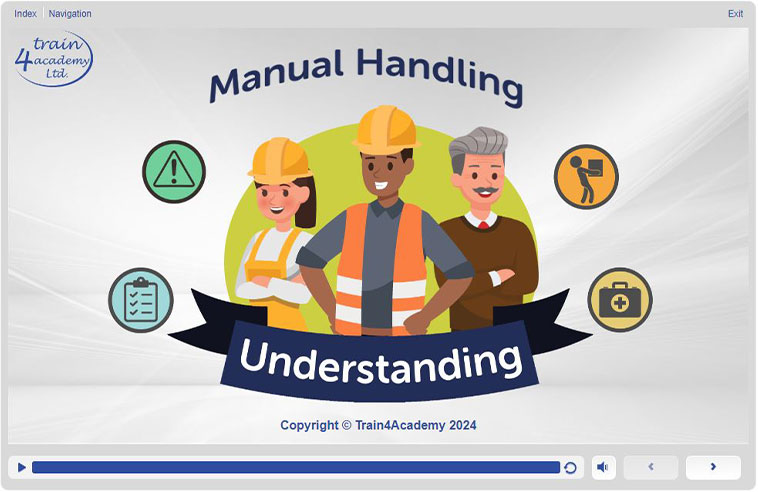Manual Handling Training and the Regulations Involved
29/06/2019
The manual handling of objects, people or animals can be a regular occurrence in some occupations and work establishments. It is, therefore, the employer's duty to ensure that all persons who are undertaking unavoidable manual handling tasks are practising safe manual handling techniques.
Employers must follow the Manual Handling Operations Regulations, 1992 (MHOR); the HSE states:
The MHOR 1992 set out a clear ranking of measures for dealing with risks from manual handling, these are:
- first: avoid hazardous manual handling operations so far as is reasonably practicable;
- second: assess any hazardous manual handling operations that cannot be avoided; and
- third: reduce the risk of injury so far as is reasonably practicable.
Due to the hazards and risks associated with manual handling, it is highly essential that all employees and have undertaken the correct training and have gained awareness on the associated risks, in order to avoid or minimise them.

Why Should I Take Manual Handling Training?
Manual handling injuries can be a common occurrence in the workplace; in fact, they cause over a third of workplace injuries. The term 'manual handling' covers a range of different activities, including carrying, pushing, pulling and lifting, and these tasks can be undertaken via different job roles and functions on a daily basis. When thinking of manual handling, you may assume that the person performing the manual handling task is in a labour-intensive job role, such as bricklaying. This is not always the case; people who work in offices, restaurants and other industries will find themselves being tasked with manual handling activities. Being trained in manual handling is equally important in all sectors, as the result of the injury will be the same if manual handling is not avoided or done incorrectly.
Employers MUST comply with Manual Handling Operations Regulations, 1992 (MHOR) and undertaking correct training for themselves and members of staff will ensure that compliance is being met. Not only is this important for the benefit of your business, but reducing risk to members of staff must be the highest priority to any employer or persons in charge.
Training will give you the knowledge you need to put safety measures in place, such as:
- How to conduct a risk assessment
- Correct manual handling techniques
- Choosing a 'responsible person'
- Awareness on how the body works, i.e. muscles, spine, etc.
- Regulations relating to manual handling
- Identifying potential problems in the workplace

How Will Manual Handling Training Benefit My Business?
Previously in this article, we have mentioned that having sufficient manual handling training for everybody in the workplace will benefit a business due to being compliant with the manual handling regulations. Another benefit that comes with manual handling training is that it will reduce injuries in the workplace.
Statistics from the HSE relating to WRMSDs (work-related musculoskeletal disorders) state:
An estimated 6.6 million working days were lost due to WRMSDs, an average of 14 days lost for each case.
WRMSDs represent 24% of all days lost due to work-related ill health in Great Britain in 2017/18. Within the total number of 6.6 million days lost due to WRMSDs, Work Related Upper Limb Disorders (WRULDs) account for around 2.6m of days lost, with back disorders around 2.2m of days lost and Work-Related Lower Limb disorders (WRLLDs) 1.7m days lost.
Source Work related musculoskeletal disorders in Great Britain (WRMSDs), 2018.
These statistics highlight the staggering loss of working days for employees due to illnesses resulting in poor manual handling. Not only will this cause a detrimental effect on a business but it will also cause distress and a loss of money to employees.
Implementing manual handling training in your business could help to protect your employees from the risk of injury, which organically leads to positive consequences for your business and increases productivity within the workplace.
Where Can I Find Manual Handling Training?
If your workplace involves manual handling, you are legally obliged under the Manual Handling Regulations to ensure that all employees have undergone competent manual handling training course.
At Train4Academy, we offer online training for employees and workers, either in an awareness course or a more intensive course, equivalent to a Level 2. Our courses give you the knowledge and understanding that you and your workers will need to ensure that you are compliant when it comes to manual handling and will help you to create a safe work environment.
Our courses cover all the above information in further detail and will give you the tools you need to create a practical risk assessment for your workplace.
Understanding Manual Handling
- Work towards compliance with UK Health and Safety legislation
- Unlimited resits at no cost
- Instant certificate
